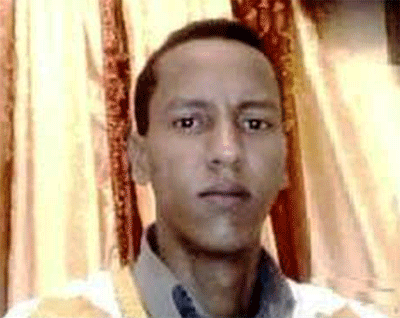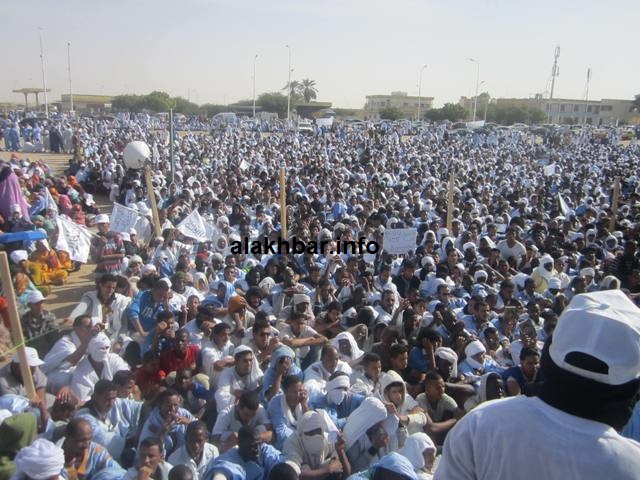A writer in Mauritania has been sentenced to death for “apostasy”, putting the crime of leaving Islam on a par with the country’s sentencing for terrorism and murder.
The International Humanist and Ethical Union (IHEU) has called the sentence “profoundly tyrannical” and called on the government to take urgent action to repeal the apostasy law.

Cheikh Ould M’Kheitir, sentenced to death for “apostasy” in Mauritania
The defendant, Mohamed Cheikh Ould Mohamed (sometimes named alternatively as Cheikh Ould Mohamed Ould M’Kheitir, or Mkhaitir), has already been detained since January 2014. He pleaded not guilty to the charge, relating to an article he wrote in which he challenged decisions taken by the prophet of Islam and his companions during the “holy wars”. The prosecution argued that the writing constituted “speaking lightly of the Prophet Mohammed” and therefore was evidence of apostasy.
The death sentence handed down on 24 December 2014 by a court in Nouadhibou, north-west Mauritania, breaks a moratorium on death-for-apostasy rulings otherwise upheld in the country since 1960.
The article by Mohamed Cheikh Ould Mohamed was also said to have criticised the caste system, accusing Mauritanian society of perpetuating “an iniquitous social order” drawn from Islamic precepts, in which those at the bottom of the hierarchy were “marginalised and discriminated against from birth”. Indeed, Mauritania has the highest proportion of slaves today in the world, and the International Humanist and Ethical Union (IHEU) and other human rights groups have repeatedly highlighted slow progress on the part of the state to in fact abolish slavery.

A crowd of “thousands” said to be at one of various protests in 2014 calling for Cheikh Ould M’Khaitir’s death
Just weeks before the sentencing, the ongoing case featured in the IHEU Freedom of Thought Report. The report noted that around his arrest in 2014, “there were a number of protests condemning his actions and angry at the pace with which his case was being dealt. There were numerous calls, including by imams, scholars and professors, for M’Kheitir’s execution. One preacher, Abi Ould Ali, offered 4,000 Euros to anyone who killed the blogger. The Mauritanian government and opposition parties supported the protests. President Mohamed Ould Abdel Aziz said, “We will apply God’s law on whoever insults the prophet, and whoever publishes such an insult.””
Lawyers for defendant argued that he was repentant and pleaded for leniency. Local Islamic organisations reportedly claimed that Mohamed’s article, which circulated on multiple online outlets, was the first text critical of Islam ever published in Mauritania. The verdict was celebrated joyously by many in court and on the streets.
Commenting on the sentencing, President of IHEU, Sonja Eggerickx, said:
“When doubting religion, or calling for social justice, are branded crimes — let alone capital crimes — the state’s contempt for human rights is starkly exposed.
“As we have seen in our work on slavery in Mauritania at the UN in Geneva, there are forces deeply resistant to the reform on Mauritania’s discriminatory social hierarchy. People representing these forces often claim Islam as a a justification for caste and slavery, and then brand all criticism of caste and slavery as anti-Islamic.
“The charge of apostasy — whether or not the charge is linked with social or political activism, whether the accused really is an apostate or not, and regardless whether there is public support for the sentence — is always a profoundly tyrannical charge. Apostasy laws contradict in the most basic and blatant sense, the human rights to freedom of thought and freedom of expression which we all share.
“We call on the government of Mauritania to urgently revisit and repeal the apostasy law. We hope that Mohamed’s lawyers will appeal, and that the appeal court will recognise that the verdict in this case contradicts Mauritania’s most basic human rights obligations and therefore overturns the conviction at the first opportunity.”